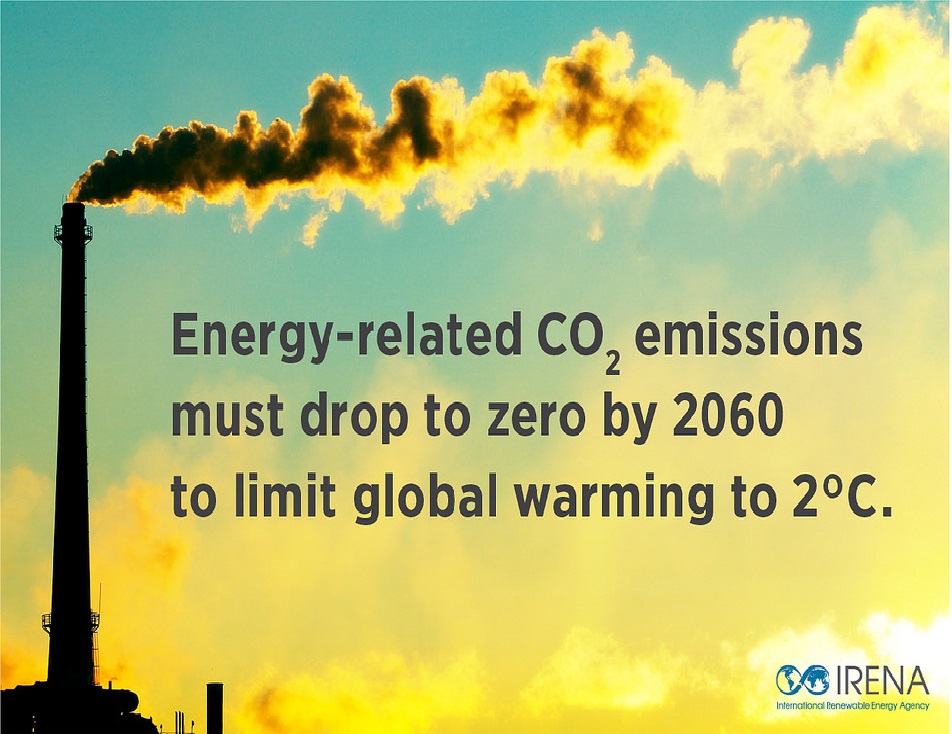Shift from fossil fuels urgent warn international energy agencies

Two international agencies warn that the world must swiftly shift energy production away from fossil fuels if it is to prevent a dangerous increase in global temperatures. Separate reports were released at the Energy Transition Dialogue in Berlin, Germany, on 20th of March by the International Energy Agency (IEA) and the International Renewable Energy Agency (IRENA). Both concluded that fundamentally changing the way power is produced would require considerable investment, though there were would also be savings due to improvements in energy efficiency. The IEA report, stressed that an unparalleled ramp up of low-carbon technologies needs to be introduced immediately and comprehensively across all countries.
To limit global warming to less than 2 C°, world annual emissions standing at over 30 gigatonnes of energy-related carbon dioxide (CO2), need to fall to less than 10 gigatonnes by 2050. Research by IRENA indicates that energy-related CO2 emissions could be reduced by 70% by 2050 and completely phased out by 2060. To achieve this, the current 15% share of renewable energy in primary energy supply would need to increase to 65% in 2050. An additional $29 trillion of energy investment would be needed by 2050, equivalent to 0.4% of global gross domestic product (GDP). At present, it is estimated that globally as many as 60 million households, or 300 million people, are served with off-grid renewable electricity.
Last year was the strongest ever for the addition of new renewable energy generation, with global capacity increasing by 161 gigawatts (GW). According to the latest IRENA Statistics, by the end of 2016 the world’s renewable generation capacity reached 2,006 GW, with solar energy showing particularly strong growth. A record 71 GW of new solar energy was installed, outpacing wind energy, which increased by 51 GW, while hydropower and bioenergy capacities increased 30 GW and 9 GW respectively. Geothermal energy capacity increased by just under 1 GW. Asia accounted for 58% of renewable additions in 2016, giving it a total of 812 GW or roughly 41 per cent of the global capacity. Asia was also the fastest growing region, with a 13.1% increase in renewable capacity. Africa installed 4.1 GW of new capacity in 2016, twice as much as 2015.
Resources: IEA report | IRENA report | A country-by-country analysis based on IRENA’s REmap and Renewable Energy Benefits programmes | Renewable capacity statistics 2017



